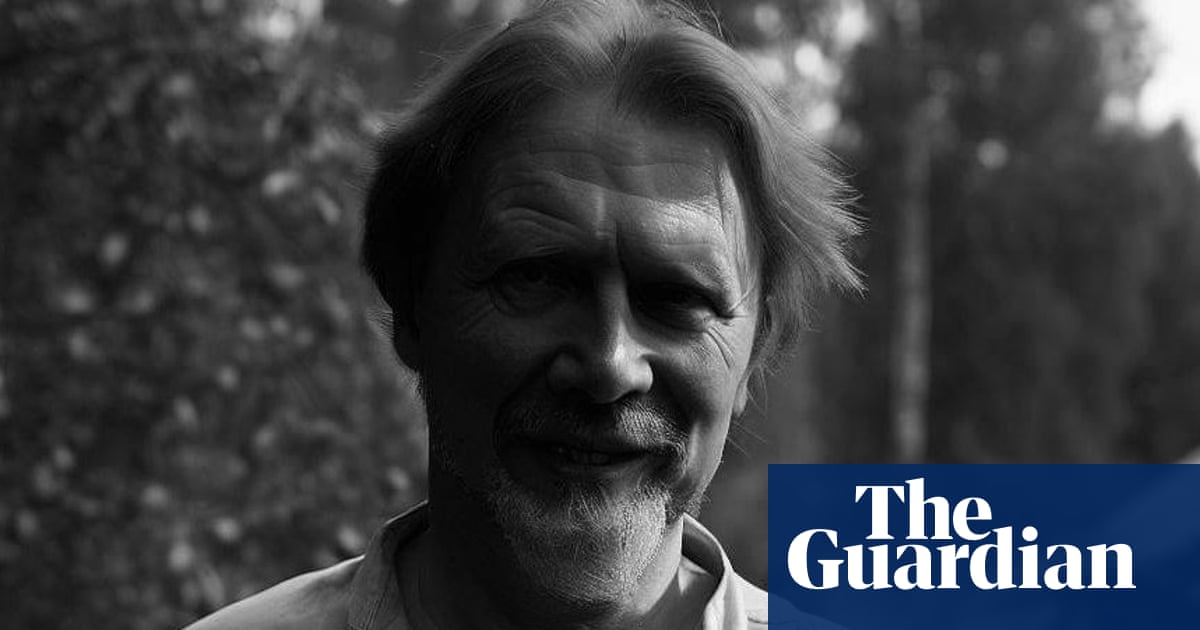The patriotic poetry of Gennady Rakitin has won him quite a following in Russia over the past year. His odes to Vladimir Putin and emotive verses in support of Russia’s war in Ukraine drew appreciation on social media and even the occasional honourable mention in Russian poetry prizes.
But Rakitin’s admirers did not realise one thing: the 18 poems published under his name were in fact Russian translations of Nazi verses penned in the 1930s and 1940s.
One, called Leader, and published with a photograph of Putin, was originally called Führer and written by the Nazi-supporting writer Eberhard Möller in the late 1930s. Another, an ode to Nazi stormtroopers, was translated into Russian and repurposed as a tribute to fighters from the Wagner paramilitary group.
Rakitin does not exist. He was invented by a group of anonymous pranksters, who wanted to demonstrate that “Z propaganda”, named after the Z symbol of Russia’s war in Ukraine and the dominant force in the Russian cultural scene, has more than a faint echo of fascism.
“We read collections of Z poetry and saw straight-up nazism there. We suspected that they probably wrote exactly the same things in Nazi Germany, and we turned out to be right,” said the group behind the project, in written responses to questions from the Guardian. They said they wanted to remain anonymous for reasons of safety.
The authors said that almost all the Nazi poems they discovered fit the current Russian context perfectly, except for a few obvious anachronisms. References to Germany were changed to Russia, but otherwise the poems were published in exact translations.
“Politically, this shows that the ideas of Nazi Germany are close to the ideas of modern Russia, even as Russia claims it is fighting nazism. Culturally, it shows that there is no renaissance of Russian culture, as the authorities claim, but only its degradation,” said the authors.
Two published photographs of Rakitin, showing him with a creased brow, silvery hair and a wispy goatee, were generated by artificial intelligence, said the authors. This did not stop numerous Russian politicians becoming friends with the account on VKontakte, a Russian social network.
The Russian journalist Andrei Zakharov, who was the first to reveal publicly that Rakitin was a fake persona, counted that nearly 100 Russian MPs followed the account on VKontakte, as well as about 30 senators and several well-known pro-war cultural figures.
Many poems were copied from Rakitin’s VKontakte page and shared by other pro-war accounts, suggesting their tone and message chimes with the current ultra-patriotic mood promoted by Russian authorities. Last month, one of the poems reached the semi-final of a poetry competition organised by a branch of a Russian writers’ union on the subject of “war and defenders of the Motherland”.
The people behind the Rakitin account said the plan had always been to come clean at a certain point, as a way of demonstrating to supporters of Putin and the war the unsavoury nature of their driving ideology. Explaining why they ended the charade now, they said: “We are tired. It was morally exhausting to endlessly be in the gloominess of Russian Z world.”
The final poem on Rakitin’s page, published in recent days, is the only one that is not a translated Nazi-era text: “Gennady long mocked / Z poems on his feed / In the end, his message was / Fuck the war”.

